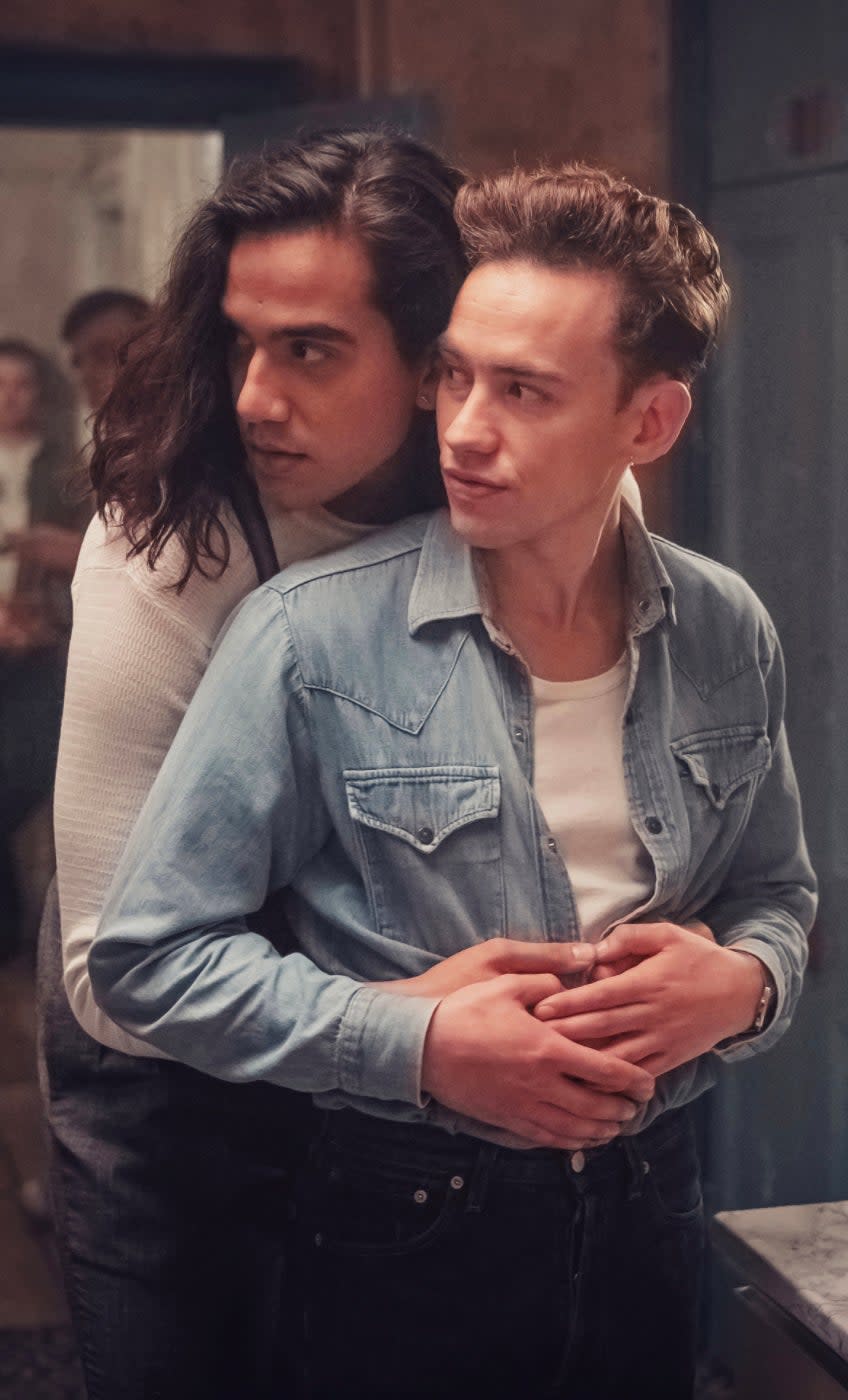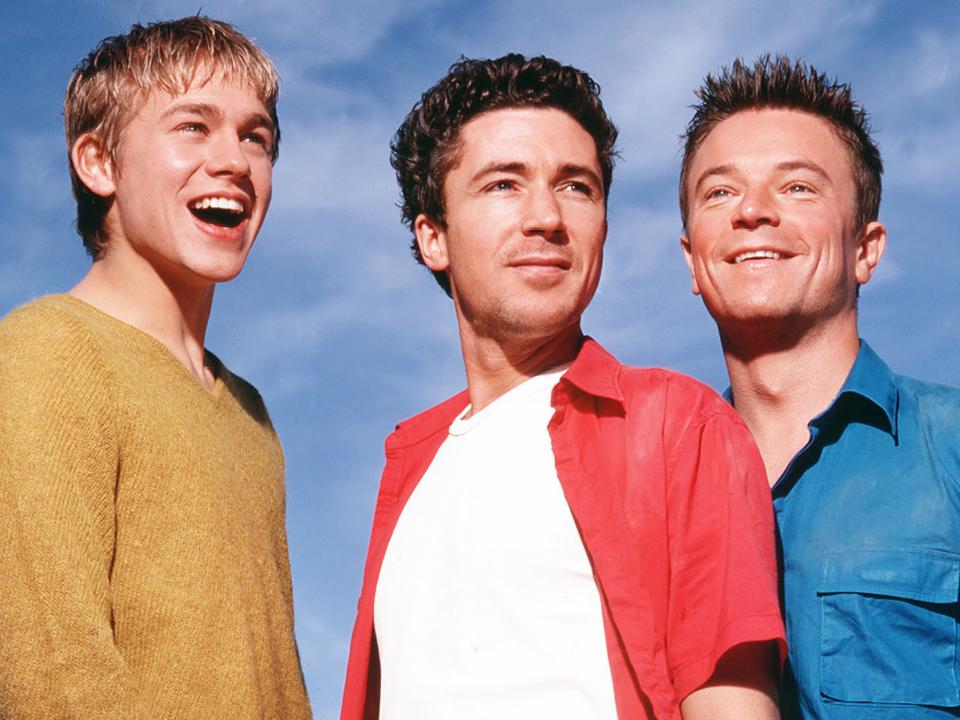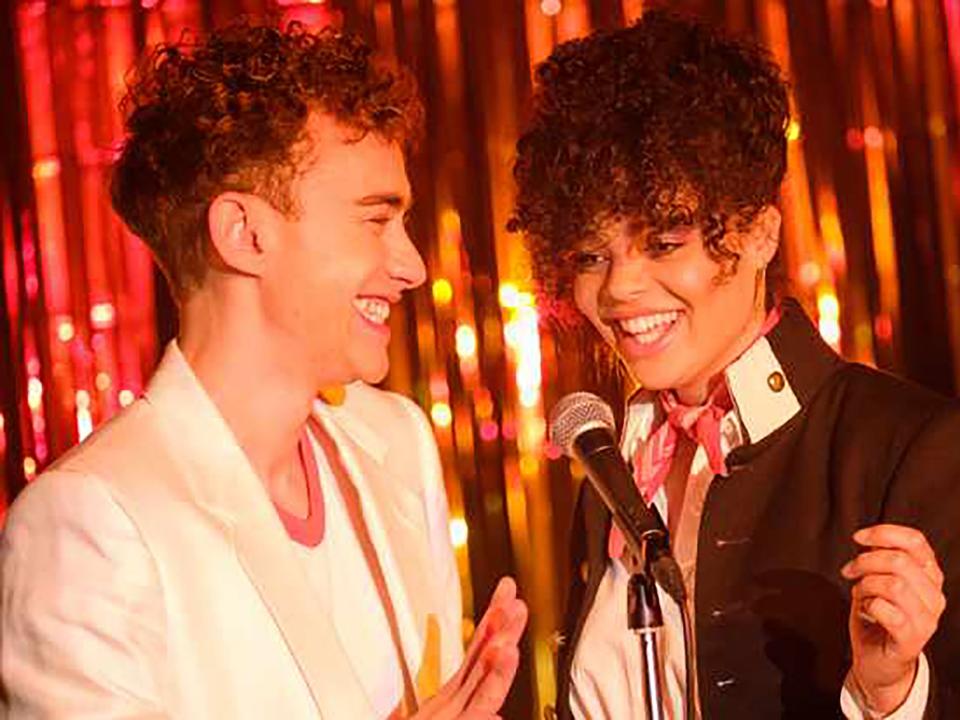Russell T Davies: ‘Blame Silicon Valley, blame the government, blame Trump… but it’s our fault’

Russell T Davies is the first to admit that a drama about the 1980s Aids crisis may be the last thing that people want to settle down and watch in the midst of a pandemic.
“My worry, to be honest, is that we’ve had to cope with this virus all day long and then Channel 4 say, ‘Here’s a drama about a virus!’” says the screenwriter on a video call from his home in Swansea. The good news, however, is that his new five-part series, It’s a Sin, is as vibrant and funny as it is shocking and moving.
“I hope it’s got a lot of life to it… a lot of energy,” he says. “Because an Aids drama is a difficult sell if people think it’s going to be very sad and very serious. That’s not how life was lived in the 1980s, it didn’t feel like that.”
It’s taken Davies, who’s 57, until deep middle age to address Aids head on. The virus was controversially absent from his ground-breaking 1999 drama Queer as Folk – a deliberate decision that he still stands by (“I refused to let our lives be defined by disease,” he wrote recently), although it crept into other writers’ screenplays. Paul Abbott and Tony Basgallop, for example, created a HIV-positive teenager for Granada Television’s Children’s Ward in 1994.
Davies’ new drama centres on three gay men who, like himself, were coming of horny age in 1981, just as rumours of a deadly virus – one that seemingly targeted homosexual men – were beginning to cross the Atlantic. The trio find themselves sharing a London flat that’s dubbed the Pink Palace.
Olly Alexander from the pop group Years & Years plays Ritchie, a drama student yet to come out to his parents (played by Keeley Hawes and Shaun Dooley). Omari Douglas is the flamboyant Roscoe, who narrowly avoids a one-way trip to Nigeria organised by his religious family in response to his sexuality, while Callum Scott Howells (cast directly from drama school) portrays the sweetly closeted Welsh virgin Colin, an apprentice at a Savile Row tailoring firm.
Add Stephen Fry as a Thatcherite MP and American star Neil Patrick Harris as an older mentor figure and It’s a Sin can boast a cast of gay actors in gay roles – something that’s been generating much media heat recently thanks to Davies’ remarks about the necessity of such authentic casting. These decisions should be made, he proclaimed, on the same basis that “you wouldn’t black someone up”.
“I’m trying to avenge years… hundreds of years of inequality,” he says now, sounding cheerfully less dogmatic than recent headlines might suggest. “The series has also unashamedly cast gay people in straight roles. I think that’s fine because, believe you me, from the age of eight we are studying straight people and how to fit in with them.”
It marks a sea change from Queer as Folk, as well as A Very English Scandal, his 2018 drama for which Hugh Grant was Bafta-nominated for his performance as queer Liberal MP Jeremy Thorpe. “I’m not going to recast anyone in my past,” says Davies. “I’m delighted with the straight actors I’ve used. They’ve done a phenomenal job and a brave job. It’s hard for a straight actor to step up to a gay part still. But right now, I feel that’s where we are.”

While there are elements of Davies in each of the young characters in It’s a Sin, it’s Olly Alexander’s Ritchie who seems the most autobiographical. “Thank you for saying that,” says Davies. “Normally people point at the daft Welsh one. Ritchie’s got a lot of myself in him, the denial and the arrogance and then the acceptance.”
Indeed, Davies wrote movingly recently about how he kept his head down during the worst of the crisis and “looked away”. He went to Oxford University to study English in 1981 and, on graduating, spent much of the remaining 1980s attempting to launch a writing career in Wales – one reason perhaps, along with the fact that he was “rather more well behaved than my characters” – that he escaped HIV.
“I was very lucky,” he says. “I read recently that an entire generation was lost to it. But it wasn’t an entire generation; good people did a lot of good work teaching safe sex and how to behave.”
One of these “good people” is the character of Jill Baxter, based on a lifelong friend of Davies since their teenage youth-drama days in 1970s Glamorgan. She’s played by Lydia West, who was also in Davies’ 2019 dystopian drama Years and Years. Jill faces the virus head-on, gathering what information she can and helping her sick friends. West revealed recently that the real Jill is in the cast, too, playing her mother.
“I felt it’s a very gay male story and so it was very important to have a strong woman’s voice in there,” says Davies. “And Jill’s more of an activist than me. I did my bit, or I thought I did my bit, and maybe I’m doing my bit now. But I didn’t live in London and she was in London where the Aids wards were bigger and busier. She held their hands and told me about it. For decades I would hear these stories about what went on in those wards.”

Davies found researching the period tougher than anticipated. “If you try to imagine the difference between 1984 and 1987, it’s really hard to pin down,” he says. “And not just the music and the pop culture, but actually the medicine on this. I’ve known about HIV for a very long time. I’ve friends who’ve died from it, I’m the patron of a Manchester HIV charity [the George House Trust in Manchester], but actually ask me to write a proper sentence in which a doctor is talking about it and I’m lost.”
He says that all the odder details in It’s a Sin are true. “Facts like the estate agents who would ask you in a questionnaire, ‘Have you ever shared a bed with another man?’… that’s true. And those parents who burn all of their dead son’s belongings… that’s true. That happened many times over. Family after family did that out of fear and ignorance and shame.”
A more pleasurable task was choosing the music for the series, including (obviously, given the title) Pet Shop Boys, but also less “cool” numbers like those in Hooked on Classics – “a cheesy mad romp through Mendelssohn to a disco beat that I remember loving at the time”.

Half-jokingly, Davies says he hopes that we get to watch his new drama before outgoing president Donald Trump launches a nuclear strike – as he did on China in Davies’ most recent drama Years and Years. On the subject of that drama, I ask him about Anne Reid’s memorable speech in the final episode in which her character tells her grandchildren: “It’s all your fault… Dear God, what a carnival. This is the world we built. Congratulations, cheers all.” Was Davies blaming young people for the state we’re in?
“It’s aimed at everyone really. Blame Silicon Valley, blame the government, blame the weather, blame Trump… but it’s our fault. We have to look at ourselves… you can change yourself. Yes, Anne Reid, I stand by it.”
Davies, whose illustrious career also includes having regenerated Doctor Who and written a drama about the Second Coming of Christ, won’t, however, be delivering any pronouncements through his characters in the near future. His next project is to script edit Lenny Henry’s upcoming ITV drama about his mother’s emigration from Jamaica, Three Little Birds. “I’m obviously slipping into my mentoring age,” he says. “I think it’s a plan to stop me writing.” For the sake of distinctive, risk-taking British drama, we’d better hope not.
It’s a Sin begins on Friday 22 January at 9pm on Channel 4
Read More
You can’t do a music biopic without the tunes, but why do one at all?


